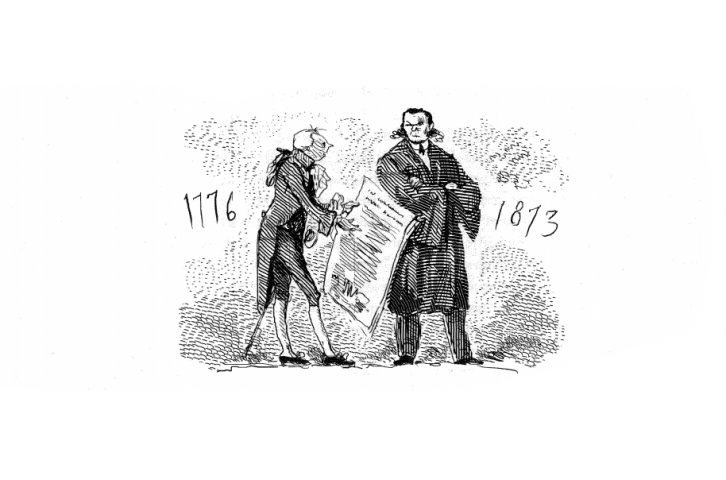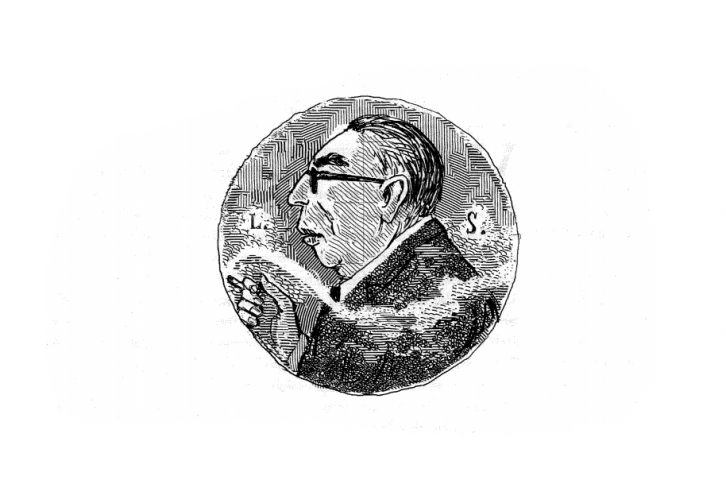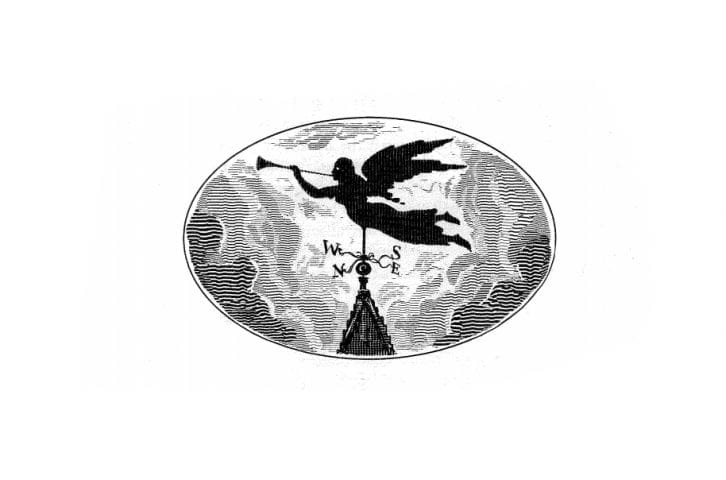In his essay, “The Myth of the Racist Republicans” (Spring 2004), Gerard Alexander challenges the conventional wisdom that Republicans’ use of strategic racism was an important catalyst for the GOP’s post-Civil Rights Era revival, especially in the South. In supporting his claims, Alexander notes that Electoral College and other statewide Republican wins in the six “peripheral” Southern states (Arkansas, Florida, North Carolina, Tennessee, Texas and Virginia) preceded GOP victories in the five “deep” Southern states (Alabama, Georgia, Louisiana, Mississippi and South Carolina). Because the ostensibly more racist, deep states turned Republican later, Alexander concludes that the GOP’s rise was therefore based less on racial antagonisms than “new South” economic and demographic changes in white communities, especially in the peripherals. But Alexander’s observation ignores the not-insignificant matter of threshold effects—that is, the possibility that small gains in party-competitive states could produce what appear to be more significant effects than larger shifts in one-party Democratic states. A better standard of measurement for the respective transformations in peripheral and deep Southern states would be the magnitude of partisan shifts, regardless of Senate seats or presidential electors captured by virtue of reaching the magical majority (or plurality) threshold.
Though there are many ways to slice various sets of electoral data, I submit that a fair accounting would be to compare the 1960 and 1988 presidential results in these 11 states. For starters, the Democratic capture of African American votes does not fully commence until 1964. (The surviving Kennedy brother would rather have us forget that in 1960 John and Robert Kennedy race-baited not only blacks but also whites, by handing out palm cards to the latter with pictures showing Richard Nixon smiling with black children.) Thus, 1960 serves as a good, final electoral benchmark for two-party support prior to the civil rights era. Because each of the succeeding six presidential elections included either a Southerner on the Democratic ticket, a serious third-party candidacy, a re-election landslide, or some combination of the three, the best two-party benchmark after this civil rights era surely must be the 1988 Bush-Dukakis election. Comparing 1960 and 1988 not only captures the partisan effects of race during the critical quarter-century between, but juxtaposes two elections wherein non-incumbent, non-Southern candidates competed with no interference from significant third-party candidacies.
——————————————–
Republican Percentage of
Popular Vote for President
“Peripheral States”
1960 1988 Net Relative
AK 43.1 56.4 13.3 30.9
FL 51.5 60.9 9.4 18.2
NC 47.9 58.0 10.1 21.0
TN 52.9 57.9 5.0 9.4
TX 48.5 56.0 7.4 15.3
VA 52.4 59.7 7.3 13.9
——————————————–
“Deep South States”
1960 1988 Net Relative
AL 42.2 59.2 17.0 40.3
GA 37.4 59.2 21.7 58.1
LA 28.6 54.3 25.7 89.8
MS 24.7 59.9 35.2 142.8
SC 48.8 61.5 12.7 26.1
——————————————–
Looking at the data, the biggest absolute change for any of the peripheral states during this period (AK’s 13.3 percent) is roughly the same as the smallest absolute change for the deep states (SC’s 12.7 percent). The relative changes are more damning. Even discarding, to be fair, the extreme cases of LA and MS, the GOP’s relative gains during this period are demonstrably higher in the Deep South. In short, the peripherals may have swung to majority-Republican states first, but the deeps swung further. And, incidentally, they are more solidly Republican today, if the Bush-Gore 2000 results (save for the exceptional case of Texas) are any indication.
Tom Schaller
University of Maryland at Baltimore County
* * *
Founding Principles
R. J. Pestritto and I would like to thank John Zvesper for his kind review of our edited book, The American Founding and the Social Compact (“The Ties That Bind,” Spring 2004). He has high praise for most of the individual chapters, and ends on a laudatory note. However, there are two points made by Zvesper that I would like to respond to.
1. Zvesper points out that in the preface to our book, we claim that the founders agreed on basic principles, that is, on the theory of the social compact. But, claims Zvesper, I admit in my own later chapter that the social compact (which Zvesper takes to mean “the need for consensual government”) is only one aspect of the founders’ political theory, which, he argues, rests on more fundamental concepts like “natural moral law, natural rights, or natural equality and liberty.”
I repeat what we said on the first page of the preface, that the founders’ political theory “lacks a definitive name,” and that we used “the theory of the social compact” merely as a convenient label. That theory, as we immediately noted, perforce includes the notion that “human beings are by nature free” (in other words, that all men are created equal), and that individuals possess natural rights that it is government’s duty to protect. Zvesper, misunderstanding what we actually wrote, is therefore wrong when he says that the social compact idea is independent of natural law and natural rights.
2. Zvesper also claims that we are wrong to say that the founders fundamentally agreed on the basic principles of government. Zvesper points, for example, to Jefferson’s view, rejected by Madison and other founders, that the states should have the right to nullify unconstitutional laws. Zvesper suggests, referring to Forde’s chapter, that Franklin did not even agree with the principles of the social compact (not true). And Zvesper notes that Adams wanted “impressive senatorial honors and a very strong executive,” and that “made him seem out of step with other founders.”
Here, Zvesper commits an error which plagues the scholarship on the founding. He confuses principles that are fundamental and unchanging with changeable devices of prudence that can and should be argued over by statesmen on the spot. The disagreements among the founders almost all concern the question of implementation—that is, what political institutions and policies are best suited to secure the natural rights of the citizens on the basis of the consent of the governed. Just because Adams wanted a strong executive, and Jefferson thought (in a moment of silliness) that laws ought to expire every 19 years, does not mean that Adams and Jefferson differed on whether all men are created equal and have the same natural rights, or whether government should be based on consent.
Thomas G. West
University of Dallas
John Zvesper replies:
I agree with Pestritto and West that the consensus among the founders was far more important than their partisan quarrels. I simply asked whether it is wise to call these basic principles “the theory of the social compact.” Tom now says this phrase was used “merely as a convenient label.” I think that understates the prominence of the idea of the social compact in the book (although not in the preface or his chapter). “Social compact,” which appears in two-thirds of the chapter titles as well as in the title of the book, is a major theme in almost every chapter.
I did not “say” or even suggest “that the social compact idea is independent of natural law and natural rights,” nor did I disagree with the editors’ statement that securing natural rights is part of compact theory, rightly understood. My point was whether, given this tendency for social compact to be (wrongly) understood as concerned simply with consent, it might be rather an inconvenient label. Is it not better to characterize the founders’ theory as the theory of natural rights, or of natural equality and liberty? True, these ideas are also frequently misunderstood, but at least they are less easily reducible to consent—that is, to opinion (however unenlightened), convention, and History.
Undeniably, social compact theory was an important part of the founders’ political thinking (although Franklin, if Steven Forde is right, agreed with the fundamental principles of the founding without finding social compact theory “intellectually congenial”). My question (I do not know the answer) is whether it is an essential part of good liberal democratic political thinking (which means natural right political thinking) at all times—including today, when liberal democrats tend to neglect natural rights more than they neglect consent.
* * *
The Locke Wars
Tom West’s thoughtful and civil review of my book Launching Liberalism (“Nature and Happiness in Locke,” Spring 2004) once again demonstrates how important Locke is to those of us who are oriented along the Chicago-Claremont axis. It also demonstrates how unlikely it is that an authoritative or consensus version of Locke will emerge any time soon. The Locke wars will not abate so long as people care about Locke, because his texts both contain intimations of and gestures towards many different positions, and develop no one of them fully.
There is one point that I do not wish to leave standing for even a minute. He suggests that my version of Locke is somehow the ancestor or source of the “historicism and liberalism of our time.” As the concluding essays of Launching Liberalism show, and as West agrees, my Locke is both different from and superior to various forms of modern liberalism and historicism. Locke, as I understand him, is radical only in the sense of thinking to the roots. He is a moderate upholder of the natural rights philosophy, and in my judgment makes the strongest case I know of for natural rights. It was not by following this Locke, but by missing his point, that later thinkers like Hume and Rousseau started us down the path to the historicism and the liberalism of our day.
Michael P. Zuckert
University of Notre Dame
* * *
Miami Vices
There are several errors of fact in Mr. Nordlinger’s review of my book (“Infidelities,” Spring 2004) as well as some misleading comments and noteworthy omissions. Mr. Nordlinger’s view—popular among a cadre of Anglo conservatives—holds that Castro can be the only villain in the Cuba debate and that any scrutiny of Miami’s history of corruption and exile violence compromises efforts to dislodge him.
Mr. Nordlinger strains to make the case that I am soft on Fidel Castro, notwithstanding the fact that the book is among the most critical ever written of Castro. Although the two chapters that deal with Castro make fairly clear my feelings on him, neither is mentioned. More peculiar is Mr. Nordlinger’s reading of my description of a marathon Castro speech that all other readers find to be derisive, but that he finds to be “orgiastic.”
As for the Diaz-Balarts, he hails the democratic election of two of them, without mentioning that it was State Senator Mario Diaz-Balart’s redistricting of south Florida—perhaps the most creative in the history of our nation—that accomplished his ascension to Congress. Also omitted is mention that both their father and grandfather were ministers and confidantes of Batista, and that their father presided over the Ministry of Interior at a time when thousands of Cubans were killed, disappeared, tortured or imprisoned.
Equally troubling is Mr. Nordlinger’s unnuanced view of Cuban exiles, buying into the stereotypes and myths that exiles are a monolith, marching in lock step, devoted to the conservative wing of the Republican Party. As stated in my book. “More often than not, they champion a political platform commonly ascribed to Democrats or liberals: generous social benefits including increases in social security, Medicare, prescription benefits and bi-lingual education. More often than not, they are pro-choice and concerned about environmental issues.”
Let’s be very clear about one thing: It takes no courage to stand up in South Florida and denounce Fidel Castro. But it is also important to speak about the excesses and erosion of human rights in Miami—because if we don’t, we may be sowing the seeds for yet another cycle of oppression in a post-Castro Cuba.
Ann Louise Bardach
University of California, Santa Barbara
Jay Nordlinger replies:
A few points (even if they come from one of a cadre of Anglo conservatives): If Ms. Bardach thinks her book is one of the most critical ever written about Castro, she ought to read more. And do all other readers find her description of that Castro speech derisive? All of them? Really?
I didn’t “hail” the Diaz-Balarts as democrats—I pointed out the fact that they are. And if Ms. Bardach thinks that holding a gerrymandered seat disqualifies one as a democrat, she has a big quarrel with American history (not to mention the Congressional Black Caucus).
The brothers emphatically and indignantly deny what Ms. Bardach says about their father and grandfather. I am not competent to judge (although I know whom I believe). But I am certain that we all deserve to be judged on our own.
Finally, I don’t “buy into” an “unnuanced view” of Miami Cubans, as Ms. Bardach says. In fact, I think just such a lack of nuance is a major flaw of her book! At least, that’s the way it seems here in the cadre.


